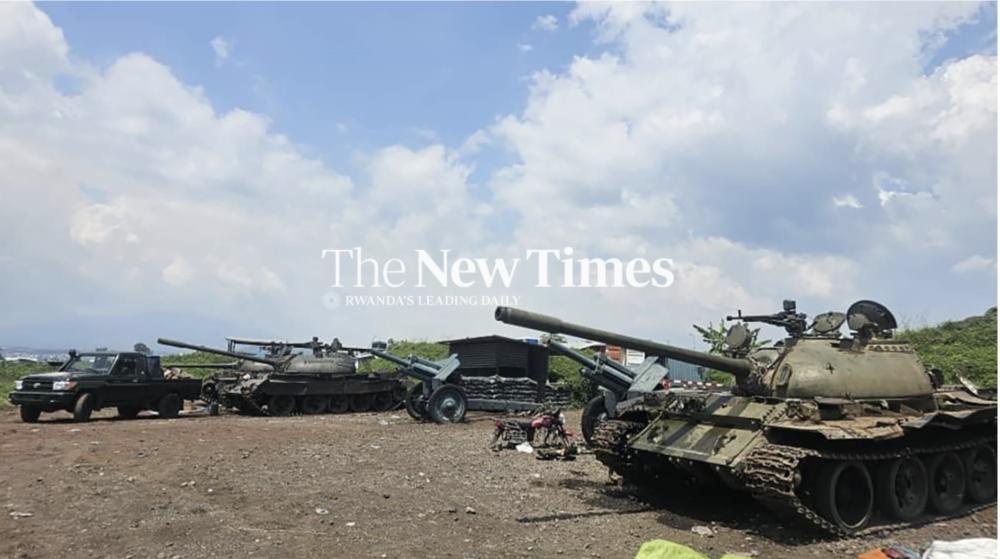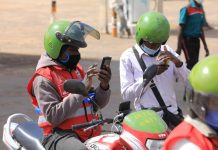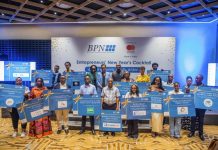Africa-Press – Rwanda. History has a cruel way of repeating itself when lessons are ignored, warnings are dismissed, and moral responsibility is replaced with self-serving geopolitics. The 1994 Genocide Against the Tutsi in Rwanda remains one of the most horrifying events of the 20th century—a moment when the world not only turned its back on the victims but actively allowed a slaughter to continue despite overwhelming evidence of its orchestration.
For over three months, more than a million Tutsi were massacred with shocking efficiency, while the so-called international community feigned helplessness. The United Nations, Western governments, and African regional bodies, all of whom had the capacity to intervene, chose to look away. Some, like France, went further, providing assistance to the very regime carrying out the genocide.
Yet, even as the world pays lip service to the mantra of “Never Again,” the same patterns of indifference persist. The Democratic Republic of the Congo (DR Congo), under President Félix Tshisekedi, has continued to harbor and empower the Forces Démocratiques de Libération du Rwanda (FDLR)—a genocidal militia composed of remnants of the same forces that executed the 1994 genocide.
Despite clear warnings, including a remarkable statement by President Paul Kagame on February 8, 2023, the international community remained silent while Tshisekedi’s administration actively plotted Rwanda’s destruction. Destructive weapons and thousands of troops were amassed close to the border ready to invade Rwanda, with the knowledge of MONUSCO and SAMIDRC.
The question is no longer whether the world has learned from history, but rather whether it ever truly cared in the first place. The silence of global powers when Tshisekedi and his lieutenants made direct military threats against Rwanda is not an oversight—it is a continuation of the same apathy that enabled the Genocide Against the Tutsi. Rwanda, however, has learned from history, and it will not be caught unprepared again.
A crime foreseen and ignored
To fully grasp the gravity of the international community’s betrayal in 1994—and its ongoing complicity in the DR Congo—it is essential to revisit the genocide with clarity. The Genocide Against the Tutsi was not an act of spontaneous ferocity, nor was it a “civil war” or “ethnic conflict,” as some revisionists would claim. It was the product of decades of systemic dehumanization, incitement, and organized killing—a methodical attempt to exterminate an entire population.
The Hutu Power ideology, formulated over decades and spread through state-controlled media, depicted Tutsis as “cockroaches” (inyenzi) and “enemies of the nation.” When the genocide began on April 7, 1994, the killings were not chaotic; they followed carefully laid-out lists of targets. Roadblocks were set up to catch those trying to escape. Over one million Tutsi were murdered in just 100 days.
What is most damning, is that this was entirely predictable and preventable. Months before the genocide, UN peacekeepers had gathered intelligence on weapons caches and the plans to exterminate the Tutsi.
General Roméo Dallaire, commander of the UN mission in Rwanda, repeatedly warned the world. Instead of acting, the United Nations reduced its peacekeeping force just as the killings began. The United States, still haunted by its failure in Somalia, refused to intervene.
France, meanwhile, actively aided the genocidal government under Operation Turquoise, providing cover for fleeing genocidaires who later regrouped in the DR Congo.
A Genocidal force rebranded
After being driven out of Rwanda by the Rwandan Patriotic Army (RPA), the genocidal forces reorganized in eastern DR Congo under the banner of the FDLR. This militia is not just another armed group among the many in the Congolese conflict. It is the direct continuation of the genocidal ideology that fueled the slaughter of 1994. The FDLR has carried out several massacres against Congolese Tutsi populations, and continues to propagate the ideology of Hutu Power.
Despite its well-documented history, successive Congolese governments—particularly under Tshisekedi—have embraced the FDLR as a strategic partner. Instead of treating them as war criminals, Kinshasa has integrated them into its military structure, supplying them with arms and intelligence. The DR Congo’s narrative that M23 rebels are “Rwandan invaders” serves as a convenient smokescreen to obscure its direct alliance with a genocidal force.
This is precisely what President Kagame meant when he delivered his warning at the Annual Diplomatic Corps Dinner in 2023:
“Does anyone in this world want to keep this FDLR story going forever? Maybe there are people who want to keep it going forever, maybe there are people who don’t even care, it’s their right. I have no quarrel with those.
But, boy, you are joking if you think some of us, Rwandans, who know the story about them, will ever agree with you. Anyone, thinking like that is just absolutely mistaken. It is about us, it is about our lives, it is about our story, it is about our history, it is about our identity, it is about our existence, and nobody in this world is the one responsible for us. No, we are responsible for ourselves. There is no question about it.”
Rwanda’s unyielding resolve to defend its people
History has shown that the phrase “Never Again” is often uttered in retrospect—after atrocities have already been committed, after nations have been shattered, and after lives have been lost. It is a phrase that world leaders invoke in solemn ceremonies, in commemorations, and in the quiet comfort of diplomatic halls. But for Rwanda, “Never Again” is not just a phrase; it is a principle, a responsibility, and a non-negotiable commitment to the survival of its people.
President Paul Kagame message and sharp words to the diplomatic corps were not mere rhetoric; they were an unambiguous caution, a reminder that Rwanda is no longer a country that will wait for the world to act when its people are in danger.
President Kagame’s speech carried the weight of history—the memory of 1994, when the world stood by as over a million Tutsi were slaughtered in cold blood. It carried the weight of betrayal—the reality that, even after the genocide, the very perpetrators of those killings were allowed to reorganize, rearm, and continue their genocidal campaign from the forests of the Democratic Republic of the Congo.
It carried the weight of responsibility—the understanding that no international body, no foreign power, and no diplomatic convention can substitute Rwanda’s own duty to protect its people.
Warning ignored, lesson learned
Being fair to Kagame’s statement— “Boy, you are joking if you think some of us, Rwandans, who know the story about them, will ever agree with you”—was directed not just at Tshisekedi, but at an international system that continues to tolerate and even enable genocidal forces like the FDLR.
Rwanda’s President was speaking to those who, instead of confronting the Congo’s complicity in harboring these killers, have chosen to appease Tshisekedi’s reckless militarism, ignoring the real danger it poses to Rwanda.
His words were a declaration of self-reliance: “It is about us, it is about our lives, it is about our story, it is about our history, it is about our identity, it is about our existence, and nobody in this world is the one responsible for us. No, we are responsible for ourselves.”
These were not just words; they were a reaffirmation of Rwanda’s moral and strategic doctrine. The world may have failed Rwanda in 1994, but Rwanda will not fail itself again. The lesson has been painfully clear: Never Again does not mean waiting for international consensus.
Never Again means taking preventative action to ensure that genocide and any form of mass murder are never repeated. Never Again means that Rwanda will not hesitate to protect its citizens, no matter who disapproves.
Indifference and the myth of global morality
The genocide against the Tutsi exposed the hollowness of international moral posturing. The same countries that championed human rights in their foreign policies stood idle as one of the worst crimes in modern history unfolded before their eyes.
The same institutions that had sworn to uphold peace and security were paralyzed by bureaucracy, self-interest, and indifference.
And now, in the face of a resurgent genocidal ideology in the DR Congo, those same forces refuse to acknowledge the danger. They ignored the FDLR’s role in destabilizing the region, they dismissed Tshisekedi’s open threats against Rwanda, and they pretended not to see the military buildup on Rwanda’s borders.
Even as Rwanda warned of the implications of these actions, no foreign government had the moral clarity to intervene and tell Kinshasa that it was playing with fire.
Tshisekedi was emboldened precisely because he knew the world would not stop him. He knew that Rwanda would be condemned if it acted in self-defense, while the DRC’s blatant aggression would be excused as mere “border tensions.” He gambled on international apathy. What he did not account for was Rwanda’s resolve.
Armageddon: The unheeded warning
Tshisekedi’s reckless militarization, the direct threats of annihilation, and the absurd claim by his Minister of Justice, Constant Mutamba—that Rwanda will be made the 27th province of the DRC, were all met with silence by the same so-called international community that claims to uphold peace and security.
A military base named “Armageddon” was set up in Kilimanyoka near the Rwandan border—a name that carries an unmistakable meaning. In biblical texts, Armageddon represents the final battle that results in catastrophic destruction.
Armageddon is a word that embodies destruction, finality, and a war of annihilation. It echoes the apocalyptic rhetoric of Théoneste Bagosora, the architect of the Genocide Against the Tutsi, who infamously described his plans as preparing for “the final solution”.
Naming a military base after this concept, in a context where an avowed genocidal force is present, was nothing short of a direct declaration of intent. The comparison to Bagosora’s apocalyptic vision of Rwanda’s destruction in 1994 is unavoidable.
The world ignored all these red flags, just as it did in 1994. Had Rwanda not taken its security seriously, the DRC’s reckless aggression could have triggered another genocide of Rwandans in general—a hecatomb unlike anything seen before, given the country’s small geographical size and high population density.
Tshisekedi was emboldened by global silence, confident that no one would hold him accountable. But Rwanda is no longer the vulnerable nation it was in 1994. It will not wait for foreign validation to defend itself. If the world refuses to learn from history, Rwanda will not wait to suffer the consequences.
That a Congolese military base—operating alongside the FDLR, Wazalendo militias, and European mercenaries—was given this name should have sent alarm bells ringing across the world. It should have led to immediate diplomatic intervention, a clear condemnation of the DRC’s actions, and a demand for de-escalation.
Instead, the world looked the other way. The same indifference that had allowed the 1994 genocide to unfold was now allowing the DRC to push the region toward catastrophe.
Had Rwanda been passive—had it waited for the world to act, as it did in 1994—the consequences would have been unimaginable. A highly populated country, struck by salvos of rockets and large-scale military assaults, could have faced a genocide of unprecedented proportions.
But Rwanda did not wait. It took control of its own fate. It learned from history, and it acted accordingly.
Never Again: Rwanda’s responsibility to itself
President Kagame’s speech was not just about the past—it was about the future. It was a recap to all Rwandans that their survival is not in the hands of foreign governments, peacekeeping missions, or diplomatic resolutions. It is a national responsibility, one that will not be delegated, debated, or postponed.
When Kagame said, “We are responsible for ourselves,” he was making it clear that: Rwanda will never again rely on the goodwill of foreign nations to protect its people. The country will act decisively against any threat, regardless of international opinion. The mistakes of 1994 will never be repeated.
This is the real meaning of Never Again. It is not a passive slogan. It is an active policy—a policy of vigilance, self-reliance, and unwavering commitment to survival.
The world may continue to make the same mistakes. It may continue to ignore clear warning signs. It may continue to prioritize political expediency over moral duty.
But Rwanda will not be a victim of these failures ever again. The phrase “Never Again” must no longer be a eulogy for past atrocities; it must be a battle cry for the preservation of life, dignity, and sovereignty. Rwanda understands this better than anyone else. And it will act accordingly—not to seek permission, but to ensure that its people never again face the horrors of 1994.
When the world speaks of “Never Again,” it must remember that the responsibility of survival ultimately lies with those whose existence is threatened. Rwanda will not be the victim of international apathy a second time.
This is not just a political stance; it is a moral duty, a historical necessity, and a promise to the future generations of Rwandans. Never Again is not just a phrase—it is a commitment.
Source: The New Times
For More News And Analysis About Rwanda Follow Africa-Press






